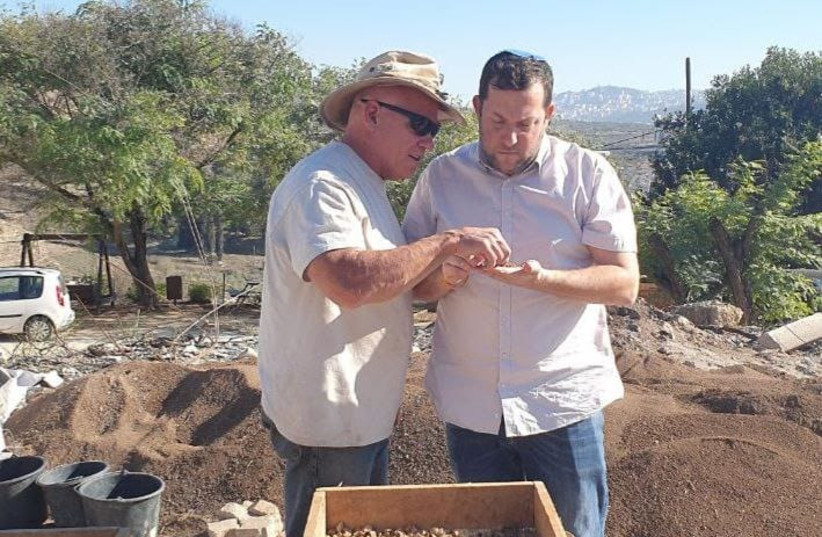An ancient Hebrew amulet has been found among the remains of an excavation carried out at the Mount Ebal archaeological site in Samaria, where the biblical altar of Joshua is located.
The amulet contains an ancient Hebrew script, a mark reminiscent of a lotus flower as well as the Hebrew letter “Aleph.” The researchers have not yet completed their research in order to understand its source.
“This is further proof of the deep and inseparable connection between the Jewish people and Samaria – the heart of the Land of Israel,” said Yossi Dagan, head of the Samaria Regional Council.
The discovery of the altar of Joshua in the West Bank by archaeologist Prof. Adam Zertal, who died in 2015 and was once head of the Archaeology Department at Haifa University, is one of the most significant discoveries in the history of archaeology in Israel.
The researcher, Zvi Koenigsberg, who assisted Zertal in the excavations at the Joshua altar from 1982 to 1988, described the process of finding the amulet.

“After the excavation, we left many piles of dirt we dug,” said Koenigsberg. “And given that the piles may contain valuable finds, a group of Prof. Zertal’s friends moved them to a safe place where they could be inspected. After many years, the appropriate means of examining the dirt were developed.”
Koenigsberg said that the amulet “had contained something inside. We found a lab in Prague that performs sophisticated photographs that allow for the construction of a three-dimensional model for objects of this size. So I went there with the amulet and came back with the results.”
